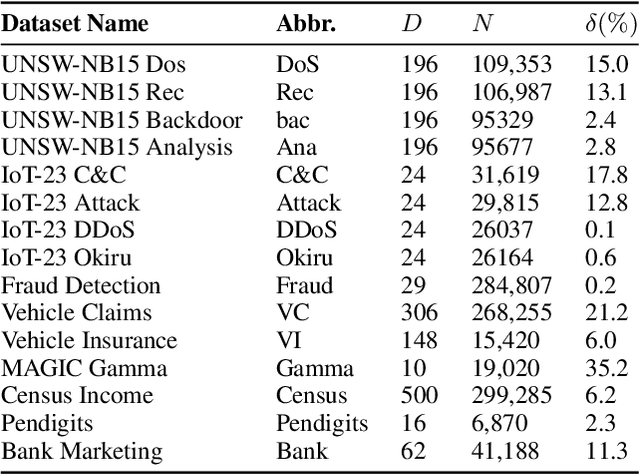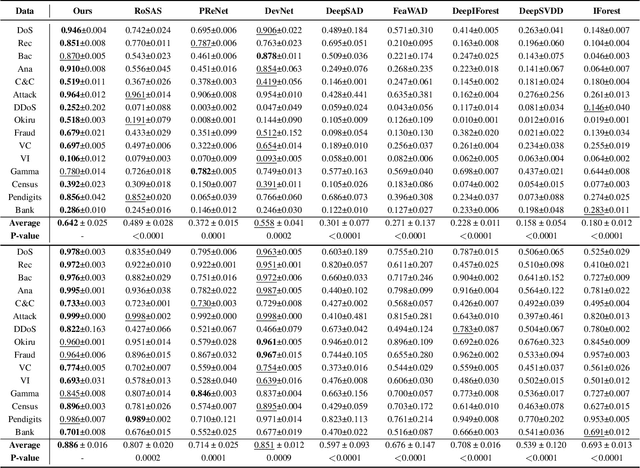Reconstruction-based Multi-Normal Prototypes Learning for Weakly Supervised Anomaly Detection
Paper and Code
Aug 23, 2024



Anomaly detection is a crucial task in various domains. Most of the existing methods assume the normal sample data clusters around a single central prototype while the real data may consist of multiple categories or subgroups. In addition, existing methods always assume all unlabeled data are normal while they inevitably contain some anomalous samples. To address these issues, we propose a reconstruction-based multi-normal prototypes learning framework that leverages limited labeled anomalies in conjunction with abundant unlabeled data for anomaly detection. Specifically, we assume the normal sample data may satisfy multi-modal distribution, and utilize deep embedding clustering and contrastive learning to learn multiple normal prototypes to represent it. Additionally, we estimate the likelihood of each unlabeled sample being normal based on the multi-normal prototypes, guiding the training process to mitigate the impact of contaminated anomalies in the unlabeled data. Extensive experiments on various datasets demonstrate the superior performance of our method compared to state-of-the-art techniques.
 Add to Chrome
Add to Chrome Add to Firefox
Add to Firefox Add to Edge
Add to Edge